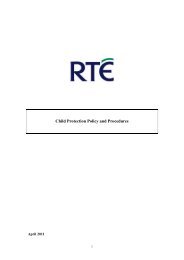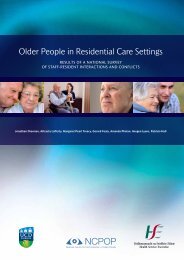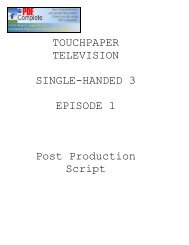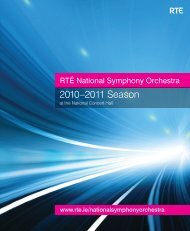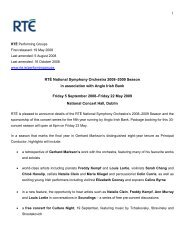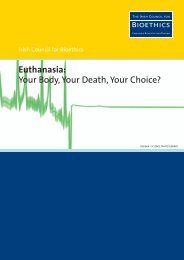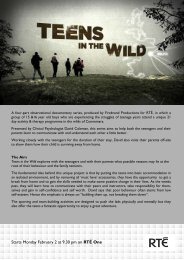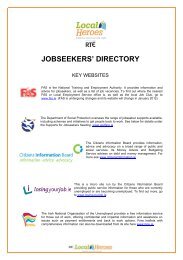JOURNALISM GUIDELINES - RTÃ
JOURNALISM GUIDELINES - RTÃ
JOURNALISM GUIDELINES - RTÃ
You also want an ePaper? Increase the reach of your titles
YUMPU automatically turns print PDFs into web optimized ePapers that Google loves.
The refusal of a person or organisation to participate should not prevent<br />
broadcast of the item. However, we must reflect fairly the views of the absent<br />
party both in what is said and how.<br />
When we make allegations of wrongdoing, iniquity or incompetence or a strong<br />
and damaging critique of an individual or institution, the presumption is that<br />
those criticised should be given a reasonable opportunity to respond to the<br />
allegations.<br />
We must ensure we have a record of any request for a response including dates,<br />
times, the name of the person approached and the key elements of the exchange.<br />
We should normally describe the allegations in sufficient detail to enable an<br />
informed response, and set a fair and appropriate deadline by which to respond.<br />
12.3 Live Programming and fairness<br />
The standards RTÉ aspires to fulfil apply to all RTÉ programming. It is<br />
recognised that in live programming, such as phone‐in shows, there may be<br />
particular difficulties in following the exact procedures and protocols set down<br />
in these guidelines. However the same standards apply to such programmes.<br />
Programme‐makers in phone‐in shows are advised to follow the guidelines and<br />
do their utmost to ensure that fairness, objectivity and impartiality, as well as a<br />
respect for privacy, remain paramount in all matters relating to the public.<br />
In live programming dealing with rolling or breaking news issues every effort<br />
should be made to contact as early as possible relevant potential contributors.<br />
Account must be taken that the notice may be too short to enable contributors to<br />
be sufficiently informed or to have determined their responses. The audience<br />
may need to be informed that insufficient notice was given to interests where<br />
participation in a programme could be expected.<br />
Any parts of the response relevant to the allegations broadcast should be<br />
reflected fairly and accurately and should normally be broadcast in the same<br />
programme, or published at the same time, as the allegation.<br />
Mandatory Obligation 15<br />
Any proposal to rely on a single unnamed source making a serious<br />
allegation or to grant anonymity to a significant contributor must be<br />
referred to the relevant Managing Director and Legal Affairs.<br />
The Managing Director and Legal Affairs will consider:<br />
whether the story is of significant public interest<br />
whether the source is of proven credibility and reliability and in a<br />
position to have sufficient knowledge of the events featured and whether,<br />
if this is a single source, there is any corroborative evidence<br />
any legal issues<br />
safety concerns, for example, for whistleblowers<br />
Page | 24



